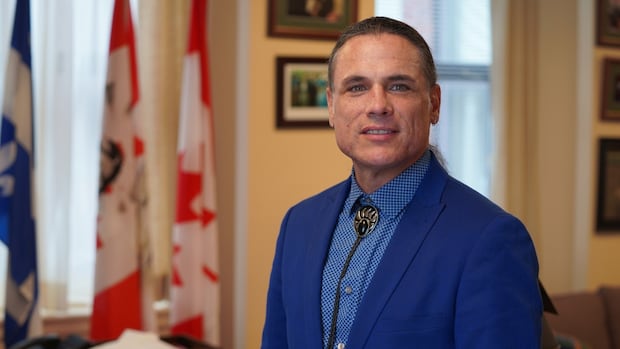[published_date]
Serene Spence says she’s lost three family members to overdoses, and doesn’t want others to experience the same kind of loss.
Spence lives in Thunder Bay, Ont., the city with the highest opioid-related death rate in the province, according to the latest data from Ontario’s Office of the Chief Coroner.
On Wednesday morning, she and her relatives trekked across town as part of Nishnawbe Aski Nation’s walk for survivors and their families, carrying framed photographs of the men they’ve lost to the opioid crisis.
“With heavy hearts, we are here today to show awareness and hopefully, people who are hurting out there will reach out and get some help, and that family members like us are no longer suffering or grieving for them,” said Spence, who is a member of Marten Falls First Nation.
Thunder Bay marks International Overdose Awareness Day
Thunder Bay has the highest opioid-related death rate in the province. People came together today in the city ahead of International Overdose Awareness Day on Sunday, and CBC’s Sarah Law was there to speak with them.
The walk ended outside the community organization, Shelter House, where people gathered in advance of International Overdose Awareness Day on Sunday. Organizations set up information booths along the street, while community leaders spoke of actions they want to see taken to reduce overdose and death rates in the district.
In the evening, a candlelight vigil was held by the Elizabeth Fry Society of Northwestern Ontario.
Spence said she wants to see more harm reduction resources — which include naloxone kits, new needles and drug equipment — as well as mental health support for those who are suffering.
“It was very overwhelming but being here today with family, it’s a healing process,” she said.
‘It’s about telling our stories’
Fay Pettypiece’s daughter, Jessica Jonasson, died of a fentanyl overdose in August 2022.
“My message out is to really, really end the stigma because my daughter didn’t want to die that day,” said Pettypiece.
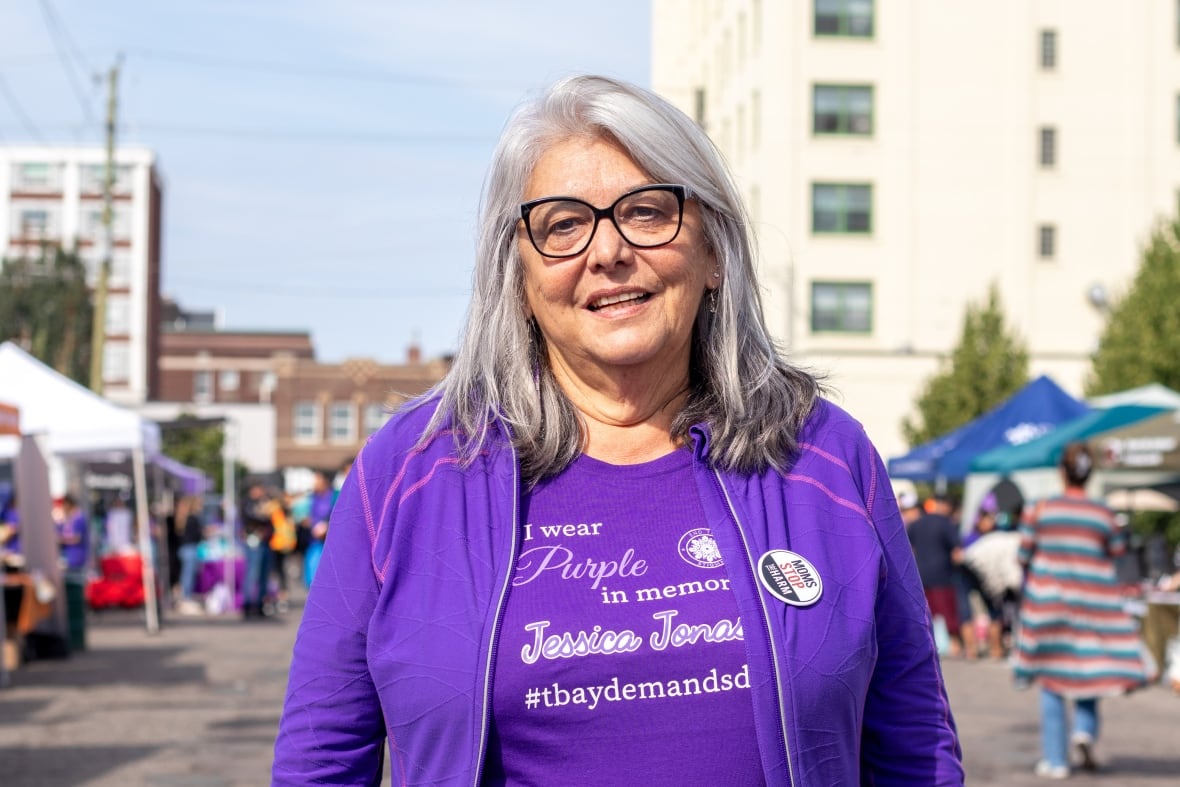
Addiction is a disease, she explained, which means people should show more empathy toward those who have become dependent on substances.
“If we’re sick, we go to the doctor, they take care of us, so these people are no different,” she said.
More housing and mental health facilities, where people can deal with their trauma, are at the top of her list of asks, she added.
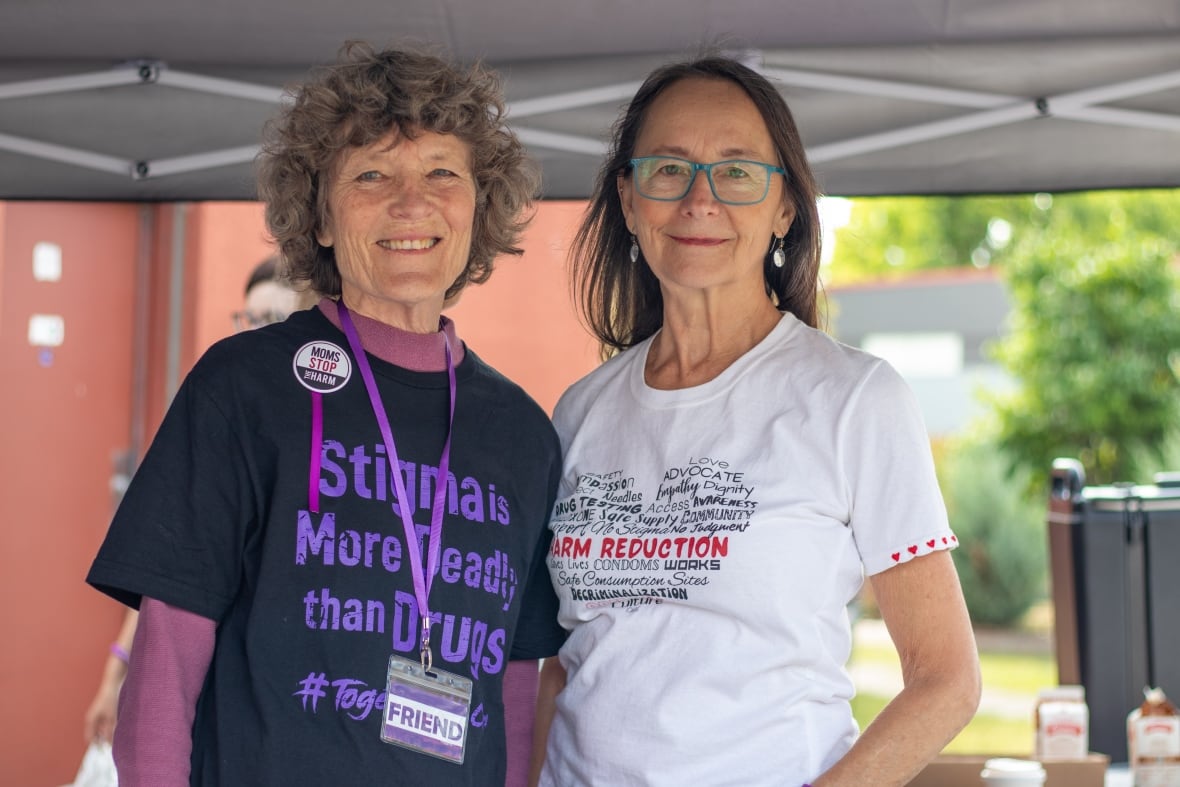
Kathleen Baleja attended Wednesday’s event to educate people about Moms Stop the Harm, a national network of families affected by substance use-related harms and deaths.
Beyond sharing resources with people who use drugs, Baleja said it’s essential for their families and loved ones to know where to go for support.
“I had felt like I was just floundering in a sea for years until I found Moms Stop the Harm,” Baleja said. “It’s about telling our stories, and once you tell your story, some of the stress goes, you tell it again and more stress goes.”
‘They keep people going’
Neighbouring Thunder Bay is Fort William First Nation, which has been under a state of emergency since last summer due to the toxic drug crisis.
The community has purchased a facility at an undisclosed location to support people who have completed a detox program as they wait to get into treatment. However, it needs government funding before it can officially open.
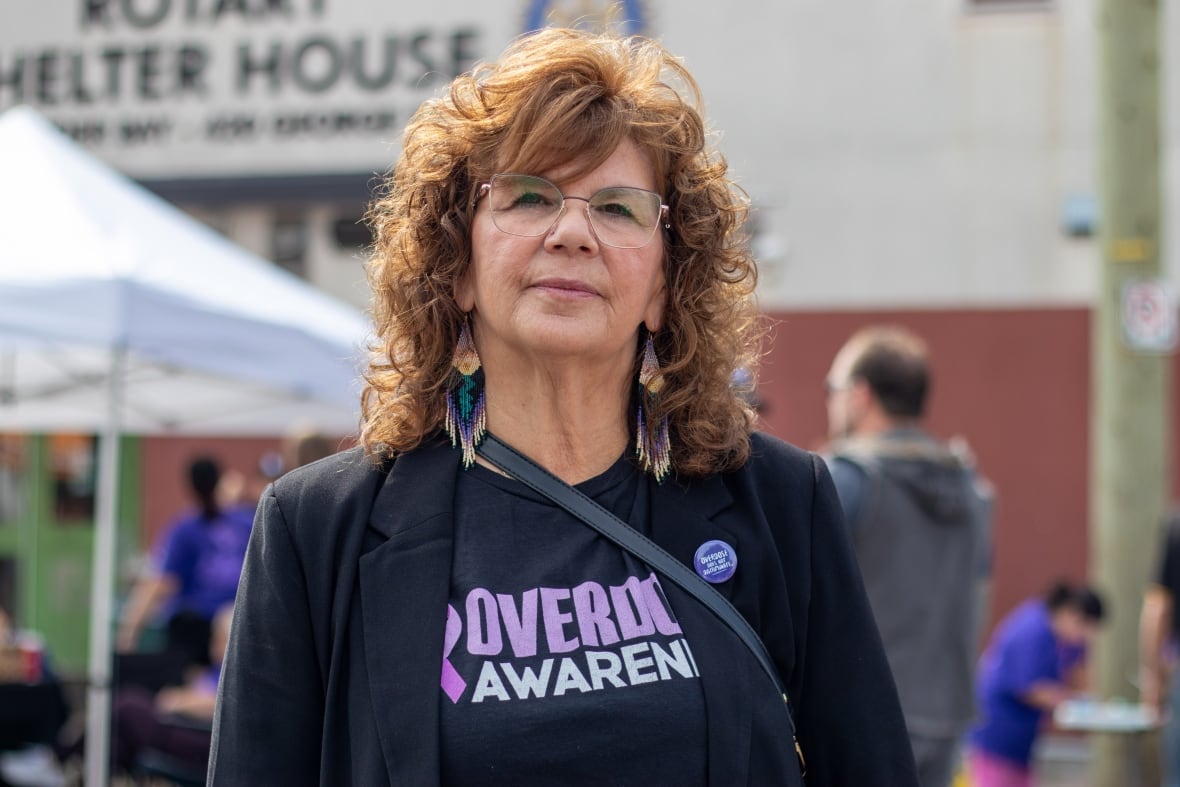
“I really feel like that could be a catalyst to people getting the help that they need that they haven’t been able to access to this point,” said Chief Michele Solomon.
Wait times to get into detox and treatment often prevent people from seeking help in the first place, said Solomon. Meanwhile, the toxicity of the street supply in Thunder Bay is spreading to Fort William, and “has had devastating impacts [on] families and the people in my community.”
But what makes her feel hopeful is seeing community groups come together to share resources and expertise, she said, because “there’s no one sector that can do this alone.”
“Coming together is a way to revitalize that hopefulness because I think that for family and small communities in particular, it’s really easy to feel hopeless and feel like it’s so hard to figure out what are all the answers, what are the solutions.”
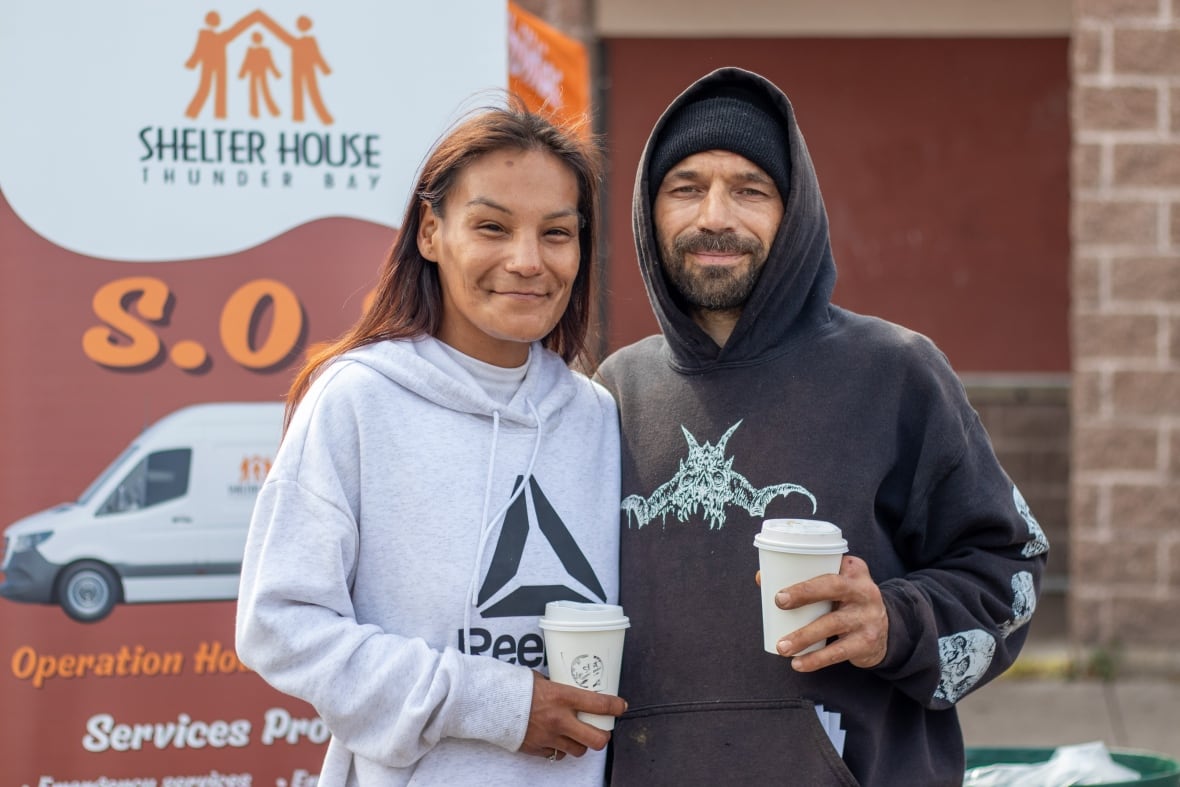
Joanna Zanni has accessed services from several of the organizations at Wednesday’s event. The Thunder Bay resident said she’s in active addiction and is grieving the loss of her brother.
“I’m not in recovery right now,” Zanni said. “I know the door is open for me to walk through it — I just have to walk through it.”
The meetings she’s attended in Thunder Bay have had a positive impact on her, she said, and she’s enjoyed participating in group activities that foster personal growth and recovery.
“They keep people going,” Zanni said. “If I could do them every day, all the time, I would.”
As she navigates her own addiction journey, Zanni encourages others to reach out for help.
“They’re wonderful people. There’s nothing scary about it and they do a lot of fun things inside the groups and stuff,” said Zanni. “They have no idea what they’re missing. I encourage everybody to do so.”



